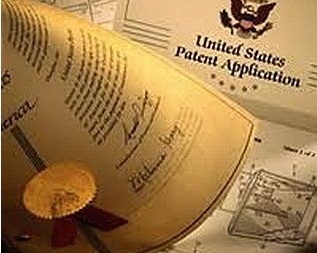Nokia Wins Wi-Fi Patent Ruling Against RIM

Nokia has won a ruling over Wi-Fi patents which could see RIM forced to stop selling BlackBerry handsets
Nokia continues to flex its impressive patent muscles after the Finnish phone maker won an important ruling against the BlackBerry maker, Research in Motion.
The ruling is potentially very serious for RIM, as the Canadian company could be forced to stop selling BlackBerry handsets if it does not reach an agreement with Nokia over royalty payments.
Legal action
The ruling came from a Swedish arbitrator, who ruled “RIM was in breach of contract and is not entitled to manufacture or sell WLAN products without first agreeing royalties with Nokia,” according to a Reuters report.
 WLAN technologies, or Wi-Fi, is widely used across the BlackBerry handset portfolio, and Nokia has reportedly now filed legal cases in the United States, Britain and Canada to enforce the arbitrator’s ruling.
WLAN technologies, or Wi-Fi, is widely used across the BlackBerry handset portfolio, and Nokia has reportedly now filed legal cases in the United States, Britain and Canada to enforce the arbitrator’s ruling.
“This could have a significant financial impact to RIM, as all BlackBerry devices support WLAN,” IDC analyst Francisco Jeronimo was quoted as saying by Reuters.
According to the report, the dispute centres over an existing patent licensing agreement, which was apparently signed between Nokia and RIM in Sweden way back in 2003. That agreement was amended and extended in 2008.
Nokia said that agreement covers essential patents for GSM, WCDMA and CDMA2000 mobile technologies, and not Wi-Fi. However, RIM has reportedly argued that the licence does include WLAN technology, but the Swedish arbitrator has disagreed with this and ruled in Nokia’s favour.
RIM has declined to comment on the ruling.
Pay up
“Nokia and RIM have been negotiating for some time but couldn’t agree on license fees,” said analyst Florian Mueller in a blog posting. “RIM mistakenly thought it would benefit from triggering an arbitration proceeding, which it did in April 2011. This backfired.
“My intepretation of Nokia’s representation of the terms of the license agreement in its US petition is that this agreement has a mechanism according to which it must either be renewed at some point or the licensee (RIM) must stop implementing the relevant standard.
“In my view, there can be no question that RIM is entitled to a license on FRAND (fair, reasonable and non-discriminatory) terms to Nokia’s WiFi SEPs.”
Meanwhile it is worth noting that Nokia is also involved in a separate patent infringement lawsuit against RIM, which it launched in May this year. That disagreement also includes HTC and ViewSonic, and Nokia is pursuing the matter in US and German courts.
What do you know about patents! Find out with our quiz!
Originally published on eWeek.